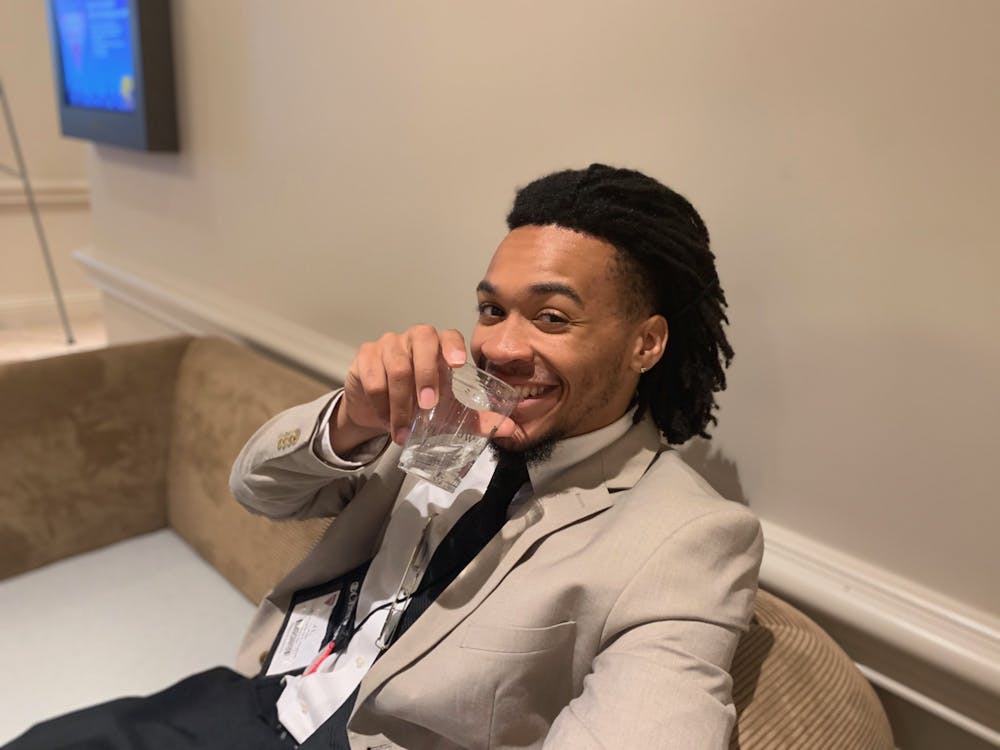This weekend, the NBA returned to action following its 48-hour players strike (not boycott) earlier in the week. And while it was nice to see the Los Angeles Lakers end Portland’s season, I must say as a Black man, I was a bit disappointed to see LeBron James and Anthony Davis take the court.
Now let me make this clear, in no way was I rooting against the NBA season. I — like many — love sports. It’d be strange if I didn’t, considering that I’ve based my livelihood on them. But when the Milwaukee Bucks decided to spend their time advocating for social justice instead of playing in a closeout game against the Orlando Magic, I felt pride.
When the entire league decided not to play, I felt inspired.
But soon those feelings disappeared. Days later, the games were back on. What had been a monumental sacrifice soon became another symbolic gesture.
And I think I’ve had my fill of symbolic gestures.
In an era where social media reigns supreme, the Black Lives Matter movement has dominated the timelines of Twitter, Instagram, Facebook, Tik Tok you name it. This is a good thing. In the 1960’s, the civil rights movement thrived in part to the growing popularity of television.
But the main reason the civil rights movement worked was the sacrifices countless people — including athletes — made to achieve the goal.
On Dec.1, 1955 Rosa Parks said no when asked to move to the back of the bus. That act was symbolic and powerful. But it wasn’t impactful. Impact was caused by the 381-day bus boycott that followed.
That’s what’s missing today. You can wear “Black Lives Matter” on your chest, you can kneel as the National Anthem starts to play, you can throw your fist in the air, but without sacrifice you’re only doing half of the job.
There goes that word again, “sacrifice.”
Sacrificing is the act of giving up something for the sake of another. It can be as simple as sacrificing the choice of chicken nuggets so you can have the cheeseburger, or as difficult as sacrificing your job so you can uplift the voices of your people.
It is something that as a society we have started to lose. Now, you can have the burger and the nuggets and you can advocate for social change from the comfort of your couch.
You can call it evolution, but I’ll call it what it is: cutting corners.
The ball was in the hands of the NBA stars but when the clock started to tick, the players ultimately decided to pass on a chance of making history. The players had the chance to force change rather than influence it, but decided that the game was too important.
When you really want something, you have to be willing to lose something to have it.
I understand what I’m saying is easier said than done. But it’s been done. And we should remember those who talked the talk and walked the walk even when the journey was hell.
Maya Moore, the four-time WNBA champion who gave up her season to help overturn the conviction of Jonathan Irons, understands sacrifice.
Colin Kaepernick, who hasn’t played a down in the NFL since 2017 but is the reason why athletes kneel, understands sacrifice.
Muhammad Ali, who would have rather gone to jail then enlist in a war he didn’t believe in, understood sacrifice.
History will look back and romanticize this struggle. Years from now there will be movies and documentaries about what sports tried to do. Details will be exaggerated, characters will be made up and stories will be edited to show a more heroic tale.
But we know the truth. The NBA had the chance to change the world and it choked. Players will continue to post and retweet while their peers really make the hard choices.
I just hope they make the movies about them instead.
J.L. Kirven is a senior studying journalism at Ohio University. He also serves as Co-Sports Editor of The Post. Please note that the views and opinions of the columnists do not reflect those of The Post. Want to talk more about it? Let J.L. know by emailing him at jk810916@ohio.edu.






